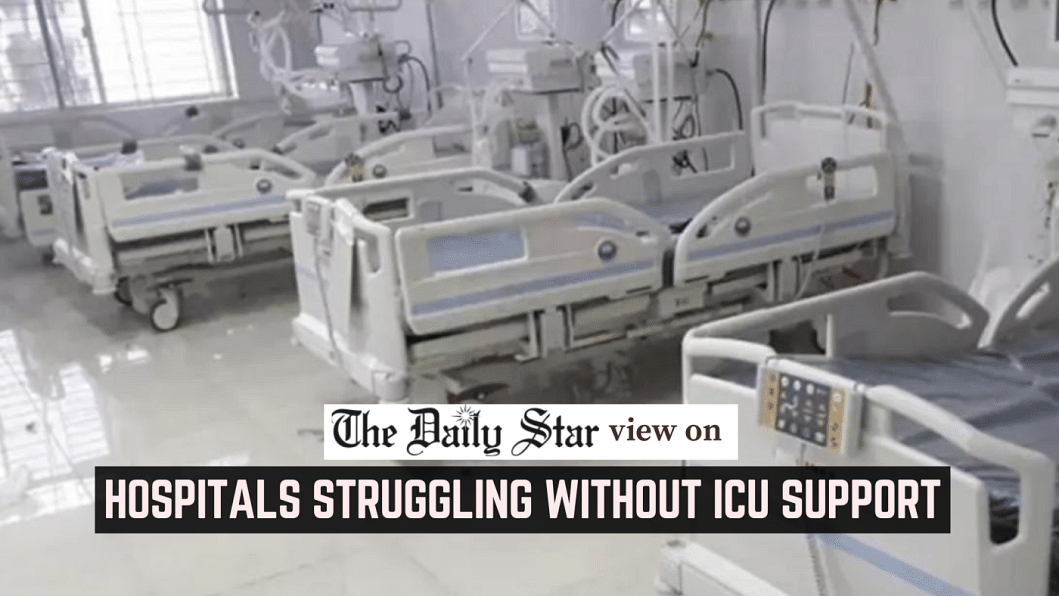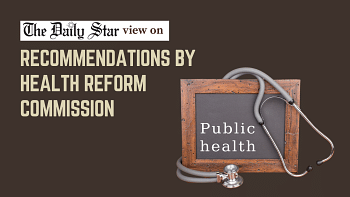Restart the ICUs of 25 public hospitals

We are shocked to learn from a report in this paper that intensive care units (ICUs) in 25 public hospitals across the country have not been functional, or only partly functional, for the last few months, mainly because of a shortage of trained staff. This has created a crisis, with critically ill patients being turned away. Most cannot afford private ICU costs and have to turn to the already overburdened, understaffed government hospitals.
According to the report, these ICUs, comprising a total of 240 beds and around 1,000 medical and technical staff, were set up in 22 districts between 2020 and 2024 under a project mainly funded by the World Bank. The contract, however, expired in December 2024, and the government did not reappoint or replace the staff, leaving these ICUs non-functional. At present, 22 districts still lack any ICU facilities, while the majority of ICU beds remain concentrated in hospitals in Dhaka. As a result, many patients must be referred to Dhaka hospitals, with the lengthy travel time posing additional risks to their health. Some hospitals have managed to keep ICUs partially operational by redeploying staff from their existing workforce and relying on dismissed staff from the project, some of whom continue to work unofficially despite their dismissal.
Originally launched to treat Covid patients during the pandemic, these ICUs are essential components of regular hospital care. We are also dismayed to learn that several other vital initiatives under this project have been abandoned after the World Bank declined to extend the contract. These include 10-bed ICUs planned for 33 other districts, paediatric ICUs in 16 medical college hospitals, obstetric ICUs for critically ill pregnant women in 15 medical colleges, 10-bed ICUs at two specialised hospitals, and one-stop emergency centres at 21 medical colleges.
Other crucial facilities that would have been established under this project include microbiology laboratories, the installation or expansion of liquid medical oxygen at 30 hospitals, and medical waste treatment plants at 20 hospitals. These are crucial services for a hospital, especially amid the rising cases of Covid and dengue infections.
It is unfortunate that the World Bank chose not to renew the contract and that the health ministry has been unable to restart these ICUs. Although the government plans to introduce a cluster system, whereby one hospital's ICU will serve patients from two to three neighbouring districts, this hardly meets the growing demand for critical care.
There has always been a glaring gap in ICU and other essential services across public hospitals nationwide. Discontinuing a project aimed at reducing this gap is unwise and shows a lack of foresight. We urge the government to raise funds through alternative donors to restart this project, which would benefit many critically ill patients and save lives.

 For all latest news, follow The Daily Star's Google News channel.
For all latest news, follow The Daily Star's Google News channel. 










Comments